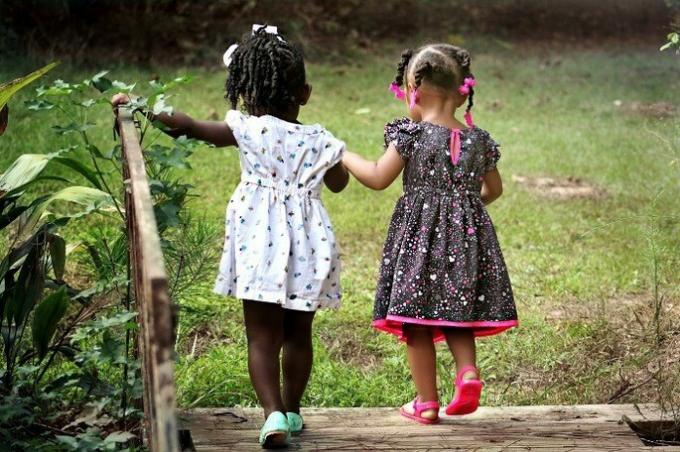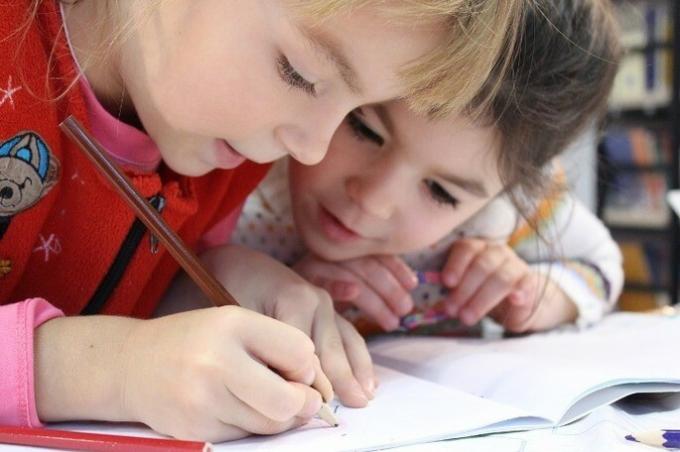27 rights and obligations of children
Children's rights are all legal provisions created to protect the freedoms of minors.
The obligations of children are a series of responsibilities that they must fulfill to establish the foundations of a healthy coexistence with their peers, with their family and their community.
Children's rights and obligations are extracted from the Convention on the Rights of the Child, approved by the United Nations in 1989 and from the Universal Declaration of Human Responsibilities, proclaimed in 1998 under the auspices of UNESCO in commemoration of the 50 years of the Universal Declaration of Rights Humans.
| Children's rights | Obligations of the boys and girls | |
|---|---|---|
| Definition | They are commitments made by the States to guarantee the protection of children in multiple areas: identity, health, education, legal protection, etc. | They are the responsibilities that every boy and girl acquires with their peers, family and community. |
Legal instruments |
|
|
| Examples |
|
|
Children's rights

In the Convention on the Rights of the Child, infants are recognized as political, economic, civil, cultural and social, and a series of commitments are established that States must assume to guarantee the protection of children in multiple scopes.
As established in this Convention, any person under 18 years of age is recognized as a boy or girl, and by virtue of this, the following rights will be guaranteed:
- Every child has the right to life.
- Boys and girls have the right to identity, and this will be expressed with the registration of the infant before the competent bodies in each country, where the name and nationality of it will be registered.
- Every infant has the right to know and be cared for by his parents.
- Children have the right to participate in the corresponding legal proceedings in case of being separated from their parents (due to abuse or separation, for example),
- Every child has the right to have contact with one or both parents in the event of separation, unless such contact is not beneficial.
- Every boy, girl and her parents have the right to free movement in the States that make up the United Nations (UN). This right will only be restricted in the cases that are clearly stipulated in the legislation of each State.
- Children have the right to freedom of expression, and therefore can receive, disseminate and search information in multiple formats (print, digital, oral or artistic). This right may be restricted in the cases provided by law, such as maintaining public order and / or to respect the right of third parties to protect their reputation.
- Infants have the right to freedom of thought, conscience and religion.
- Boys and girls have the right to associate freely and to meet peacefully.
- Every child has the right to be protected by the law against any interference in her private or family life or that affects her reputation.
- Those boys and girls who have been separated from their parents or relatives in pursuit of their well-being have the right to have assistance and protection from the State.
- Every infant with refugee status must be protected and assisted so that you can access your rights.
- Girls and girls with disabilities or physical or mental conditions have the right to enjoy a satisfactory lifeia and in optimal conditions that guarantee their development and their participation in society.
- Every infant has the right to access health. The State must guarantee the mechanisms that allow them to receive timely medical attention.
- All children have the right to social security.
- Children have the right to live in optimal living conditions that allow them to develop their potential in the physical, mental, moral and spiritual realms.
- Every infant has the right to free education at the elementary level, accessible in secondary studies and at the higher level if it meets the rigorous academic requirements.
- Every child who is part of a minority social or ethnic group has the right to express themselves in their own language and to practice their own religion.
- Any boy and girl has the right to rest and recreation.
- Infants have the right to participate in cultural life and artistic environment.
- Children have the right to be protected against any form of economic exploitation.
- Every child has the right to receive legal assistance if he is deprived of his liberty.
See also:
- Human rights and individual guarantees.
- Difference between prejudice, racism and discrimination.
Obligations of the boys and girls

It is understood that if girls and boys are people with rights, they also have obligations. By virtue of this, in the Universal Declaration of Human Responsibilities, published in 1998, the following responsibilities were established:
- Children have the responsibility to respect each other, without race, age, nationality or religion being an impediment to it.
- No infant should apply physical abuse to another, or any other form of harm (teasing, harassment, etc.).
- Every child has the obligation to help other children in a disadvantaged situation so that they can fully enjoy their rights.
- Children have the responsibility to take care of the environment. In this way they will be able to fully enjoy their right to grow in an environment appropriate for their development.
- Every child has the responsibility to learn the knowledge that is instilled in them at school, always to the best of their abilities, and trying to share what they know with other children.
See also: Rights and obligations of citizens.
